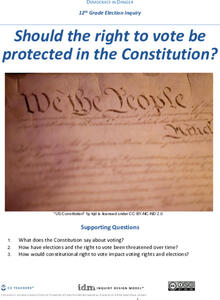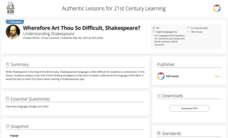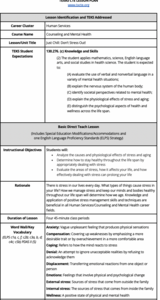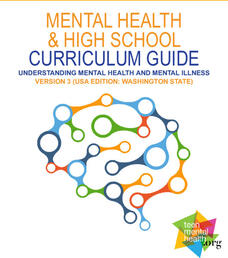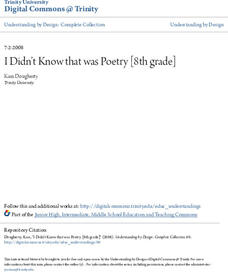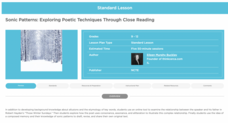Core Knowledge Foundation
The Human Body Tell It Again!™ Read-Aloud Anthology
A read-aloud anthology showcases various stories about the human body. Scholars participate in lessons that introduce a reading, listen to and discuss the reading, then complete in-class and at-home practice.
Core Knowledge Foundation
Fables and Stories Tell It Again!™ Read-Aloud Anthology
A read-aloud anthology focuses on fables. Over three weeks, first graders listen to various stories and then participate in lessons that cover story elements, including plot, characters, setting, and personification and explore...
C3 Teachers
Democracy in Danger: Should the Right to Vote Be Protected in the Constitution?
High school seniors investigate what national, state and local rules say about voting. After examining the Constitution's articles, clauses, and amendments, researchers look at videos, listen to podcasts, and read articles to gather...
C3 Teachers
Black Women Writers: What Gets Black Women Heard?
Zora Neal Hurston, Toni Morrison, and Maya Angelou are featured in a guided inquiry unit. High schoolers research the lives and works of these and other Black women writers and craft an argument, using evidence from their research, to...
C3 Teachers
Uncle Tom’s Cabin: Can Words Lead to War?
"Words, words, words." Despite Hamlet's opinion, words can be significant. In this inquiry lesson, middle schoolers learn how the words in Harriet Beecher Stowe's Uncle Tom's Cabin, in the view of many, lead to the American Civil War. To...
C3 Teachers
2020 Protests: Is There Anything New about the 2020 Protests?
Are marches and protests an effective form of resistance? That is the question high schoolers seek to answer in this inquiry lesson as they compare the 2020 protests to historical ones. Researchers use Venn Diagrams to compare images...
Core Knowledge Foundation
First Grade Skills Unit 7
The last unit in the series by Core Knowledge focuses on alternative spellings, nouns, verbs, conjunctions, subject-verb agreement, using commas in a series, constructing sentences, and following the writing process while writing...
Core Knowledge Foundation
First Grade Skills Unit 6
A unit explores alternative spellings, ways to include nouns, pronouns, adjectives, and prepositions in sentences, and writing personal narratives. Over 25 lessons, first graders participate in whole group and small group instruction....
Core Knowledge Foundation
First Grade Skills Unit 5
Twenty-two lessons make up a unit that focuses on first-grade skills. Scholars examine spelling alternatives—their rules and patterns, practice tricky spelling and high-frequency words, explore plural nouns and sentences, read a...
Core Knowledge Foundation
First Grade Skills Unit 4
Twenty-eight lessons make a unit that focuses on skills practice. Lessons explore r-controlled vowels, past tense verbs, nouns, adjectives, and two-syllable words. Pupils read a story, answer questions, and draft a descriptive essay...
Core Knowledge Foundation
First Grade Skills Unit 3
Four weeks, 19 lessons—this unit covers five new vowel spelling patterns, tricky words, spellings, verb tenses, reading fables and exploring the writing process. Lessons offer review, an introduction to the concept, skills practice,...
Core Knowledge Foundation
First Grade Skills Unit 2
Nineteen lessons make-up a four-week-long unit that explores long vowel sounds, nouns, and 11 high-frequency words. Lessons scaffold information to gain confidence in reading a decodable text and answering questions. Routines include...
Core Knowledge Foundation
First Grade Skills Unit 1
First graders participate in skills practice with 32 lessons focusing on sound-spelling correspondence—sound combinations, consonant digraphs, double letter sounds, tricky spellings, and words. Lessons begin with a warm-up, review and...
K20 LEARN
OPTIC - A Reading Strategy Recipe: Visual Literacy
A visual literary lesson plan provides learners with OPTIC (Observations, Predictions, Themes, Inferences, Conclusions), a reading strategy to help them understand and interpret visual and written texts. Scholars practice the strategy...
K20 LEARN
Wherefore Art Thou So Difficult, Shakespeare? Understanding Shakespeare
'Tis not easy to understand the language of the Bard! But, hark! Fret not! With the assistance of this joyous activity, young players learn how to translate Shakespeare's English into modern language. Groups examine passages from Julius...
Anti-Defamation League
The Skin I’m In: Discussion Guide for Grades 8 and Up
Words can hurt! But self-esteem can blunt the impact. That's the takeaway when discussing the themes in Sharon G. Flake's powerful novel The Skin I'm In. A discussion guide leads groups through a study of this narrative of a girl who is...
Carolina K-12
Public Christmas Displays and Lynch v. Donnelly
Does a Christmas display on government property violate the Constitution? Learners study the Establishment Clause of the First Amendment and learn about the landmark Supreme Court case Lynch v. Donnelly through watching a documentary and...
Texas Education Agency (TEA)
Just Chill: Don’t Stress Out!
Billy Joel's song, "Pressure," opens a lesson that teaches some techniques to deal with pressure and stressors, significant factors that contribute to aging and poor health. Throughout the four-day lesson, participants study stress...
Texas Education Agency (TEA)
Road Blocks to Mental Health
According to the Center for Disease Control and Prevention (CDC), fewer than half of adults seek treatment for mental health disorders. Those interested in careers in mental health investigate why this is so by looking at the stigma...
Texas Education Agency (TEA)
Health and Wellness Throughout the Lifespan
Every stage of life has its requirements for staying healthy. Young developmental psychologists investigate the psychological effects of stress and aging and health and wellness strategies that may improve one's quality of life. Groups...
Academy of American Poets
Women in Poetry
Imagine linking poetry to technology! Thirty-three lessons comprise a 6-week "Women in Poetry" unit for high schoolers. Class members research women poets, learn how to respond electronically to discussions, write their poems, create web...
Mental Health Literacy
Mental Health and High School Curriculum Guide - Version 3
A 171-page curriculum provides educators with the information they need to help and support high schoolers' mental health. The curriculum targets five domains: learning how to maintain good mental health, learning about mental disorders...
Trinity University
I Didn’t Know that was Poetry
Poetry or prose? That is the question facing middle schoolers as they begin a month-long poetry unit by examining the characteristics that differentiate poetry and prose writing. Pupils learn about poetic devices and different types of...
ReadWriteThink
Sonic Patterns: Exploring Poetic Techniques Through Close Reading
Robert Hayden's poem "Those Winter Sundays" serves as the anchor text in a five-part lesson plan that takes the mystery out of poetry analysis by modeling explicit strategies for pupils to employ to conduct a close reading of a poem....




